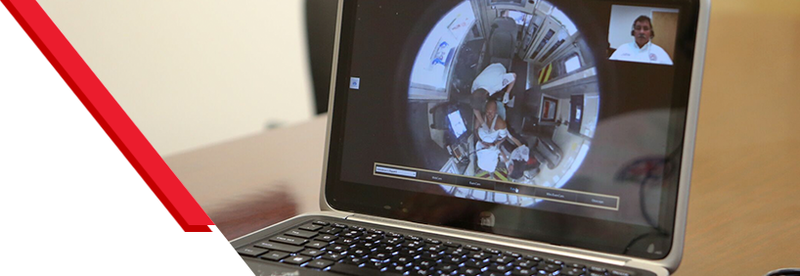
As a progressive and innovative EMS service, Lifeguard continuously seeks to improve our services as it relates to the overall health, safety and wellbeing of our team members, as well as the communities and patients we serve. Our embrace of technology has contributed to Lifeguard’s rapid growth and establishment as an industry leader. From our dispatch technologies to our advanced patient care equipment, we use these tools to attain new heights of excellence in service delivery and patient care.
Proactive Safety Programs
As part of our operational core, the safety of our patients and team members is our number one priority each and every day. Lifeguard teams complete countless training hours on operational safety and clinical care, including numerous workplace and driving safety programs and certifications. In addition to preventative education, Lifeguard also invests in technological safeguards like proactive driver feedback and performance monitoring systems. Our adopted safety mission statement is: “To provide the safest working environment in the industry for our team members, our patients and the public we serve.” Our stringent safety measures are proven effective and have garnered recognition on a nation-wide industry level.
Pioneers in Telemedicine
Recognizing the beneficial capabilities of physician treatment and evaluation during transport, telemedicine is becoming increasingly popular in the EMS industry. This technology provides a physician with “direct” access to the patient via on-board microphones, webcams, virtual stethoscopes and the hands/skills of the paramedic.
The use of telemedicine in E-911 settings can, in many cases, decrease the number of unnecessary emergency room visits by treating low-acuity symptoms prior to transport. Not only is telemedicine advantageous in an emergency situation, but also in the response to high-acuity, specialized patient transports and the development of mobile integrated healthcare platforms. Lifeguard is currently deploying several telemedicine solutions across the organization to assist in E-911 and specialty care transport sectors.
The following information regarding the Aviation Consumer Protection Division is provided to comply with 49 U.S.C. Section 42302. The DOT Aviation Consumer Protection Division’s contact information is as follows:
Aviation Consumer Protection Division, C-75
U.S. Department of Transportation, 1200 New Jersey Avenue, SE. Washington, DC 20590
202-366-2220 (TTY 202-336-0511), 1-866-TELL-FAA (1-866-835-5322)